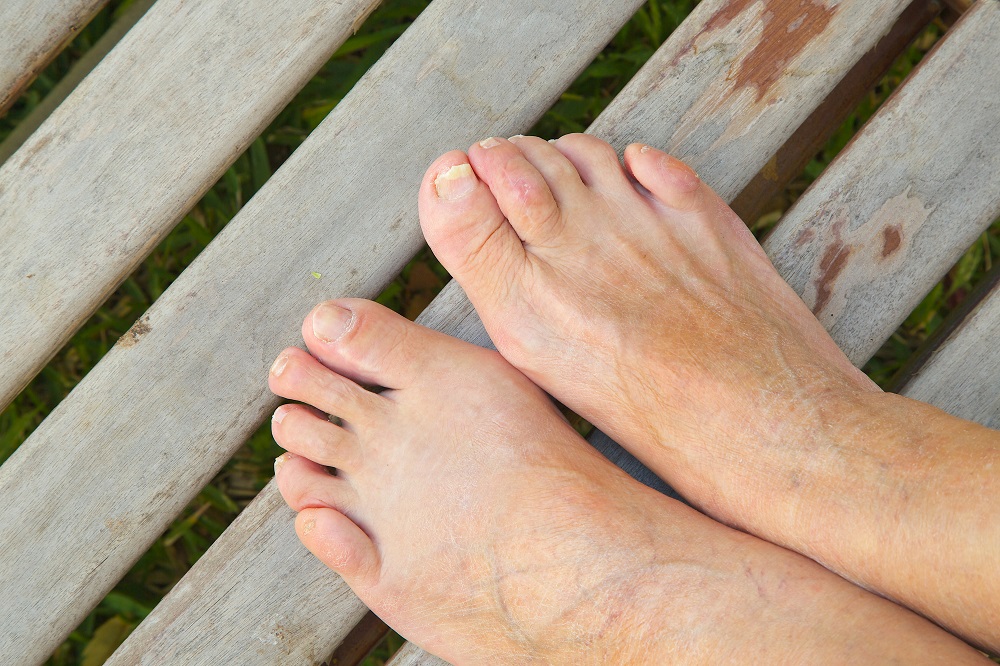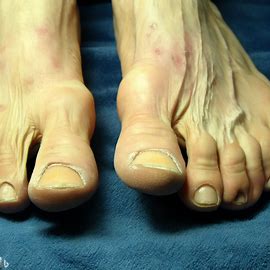At WeTreatFeet Podiatry, We Treat Fungus
Understanding Toenail Fungus
Toenail fungus, also known as onychomycosis, is a common fungal infection that affects the nails, particularly the toenails. It can cause discoloration, thickening, brittleness, and crumbling of the nails. Toenail fungus is often stubborn and can take time to treat effectively.
What is Hydrogen Peroxide?
Hydrogen peroxide is a chemical compound commonly used as a disinfectant and antiseptic. It is known for its ability to kill bacteria, viruses, and fungi. It is readily available in most households and is often used for cleaning wounds and sterilizing surfaces.
Can Hydrogen Peroxide Treat Toenail Fungus?
While hydrogen peroxide has antimicrobial properties, its effectiveness in treating toenail fungus is still not established among medical professionals. Some studies suggest that hydrogen peroxide may have antifungal effects and can help inhibit the growth of fungi. However, there is no significant scientific evidence to support its use as a standalone treatment for toenail fungus.
Other Treatment Options for Toenail Fungus
While hydrogen peroxide may have some potential benefits, it is often recommended to combine it with other treatment methods for better results. Consult with a WeTreatFeet Podiatrist for a comprehensive treatment plan, which may include:
- Over-the-counter antifungal creams or ointments.
- Prescription oral antifungal medications.
- Topical nail lacquers.
- Laser therapy.
- Surgical nail removal in severe cases.
Prevention Tips for Healthy Toenails
Prevention is key when it comes to toenail fungus. Here are some tips to help keep your toenails healthy:
- Keep your feet clean and dry, especially in between the toes.
- Wear breathable footwear and moisture-wicking socks.
- Avoid sharing personal items like nail clippers or shoes.
- Protect your feet in public areas, such as pools or locker rooms, by wearing sandals or flip-flops.
- Trim your nails straight across and avoid cutting them too short.
Stay Positive and Take Care of Your Toenails!
Remember, treating toenail fungus can require patience and persistence. While hydrogen peroxide may offer some benefits, it is important to explore other treatment options and consult with a healthcare professional for guidance. Maintain good foot hygiene, follow preventive measures, and be consistent with your chosen treatment method. With time and proper care, you can improve the health and appearance of your toenails.
Hydrogen peroxide has been suggested as a potential treatment for toenail fungus due to its antimicrobial properties. However, its effectiveness as a standalone treatment has not been established. While you may choose to try using hydrogen peroxide for toenail fungus, it is advisable to consult with a WeTreatfeet Podiatrist for a comprehensive treatment plan that may include other proven methods.
Frequently Asked Questions (FAQs)
Q: Can hydrogen peroxide cure toenail fungus?
A: Hydrogen peroxide may have some antifungal properties, but it is unlikely to cure toenail fungus on its own. It is best to consult with a WeTreatFeet Podiatrist l for a personalized treatment plan.
Q: Are there any side effects of using hydrogen peroxide on toenail fungus?
A: Hydrogen peroxide may cause skin irritation or allergic reactions in some individuals. It is recommended to perform a patch test before using it extensively and discontinue use if any adverse reactions occur.
Q: Can I use hydrogen peroxide for all types of toenail fungus?
A: Toenail fungus can have different underlying causes, and the effectiveness of hydrogen peroxide may vary. It is advisable to consult with a WeTreatfeet Podiatris to determine the most suitable treatment approach based on your specific condition.
Q: How long does it take for hydrogen peroxide to show results on toenail fungus?
A: The time required to see results may vary depending on the severity of the infection and individual factors. It is important to be consistent with the treatment and follow the recommended guidelines.
Q: Are there any natural remedies for toenail fungus?
A: Some natural remedies, such as tea tree oil, vinegar, or essential oils, are believed to have antifungal properties. However, their effectiveness may vary, and it is recommended to consult with a WeTreatfeet Podiatrist for guidance.
If you are looking for a podiatrist who can provide you with quality care for your foot and ankle needs, then WeTreatFeet Podiatry is the right choice for you. We are a team of experienced and qualified podiatrists who are dedicated to providing you with the best possible care. We offer a wide range of services, including diagnosis, treatment, and prevention of foot and ankle conditions. We are committed to providing you with the care you need so that you can get back to enjoying your active lifestyle. Click here to schedule an appointment




